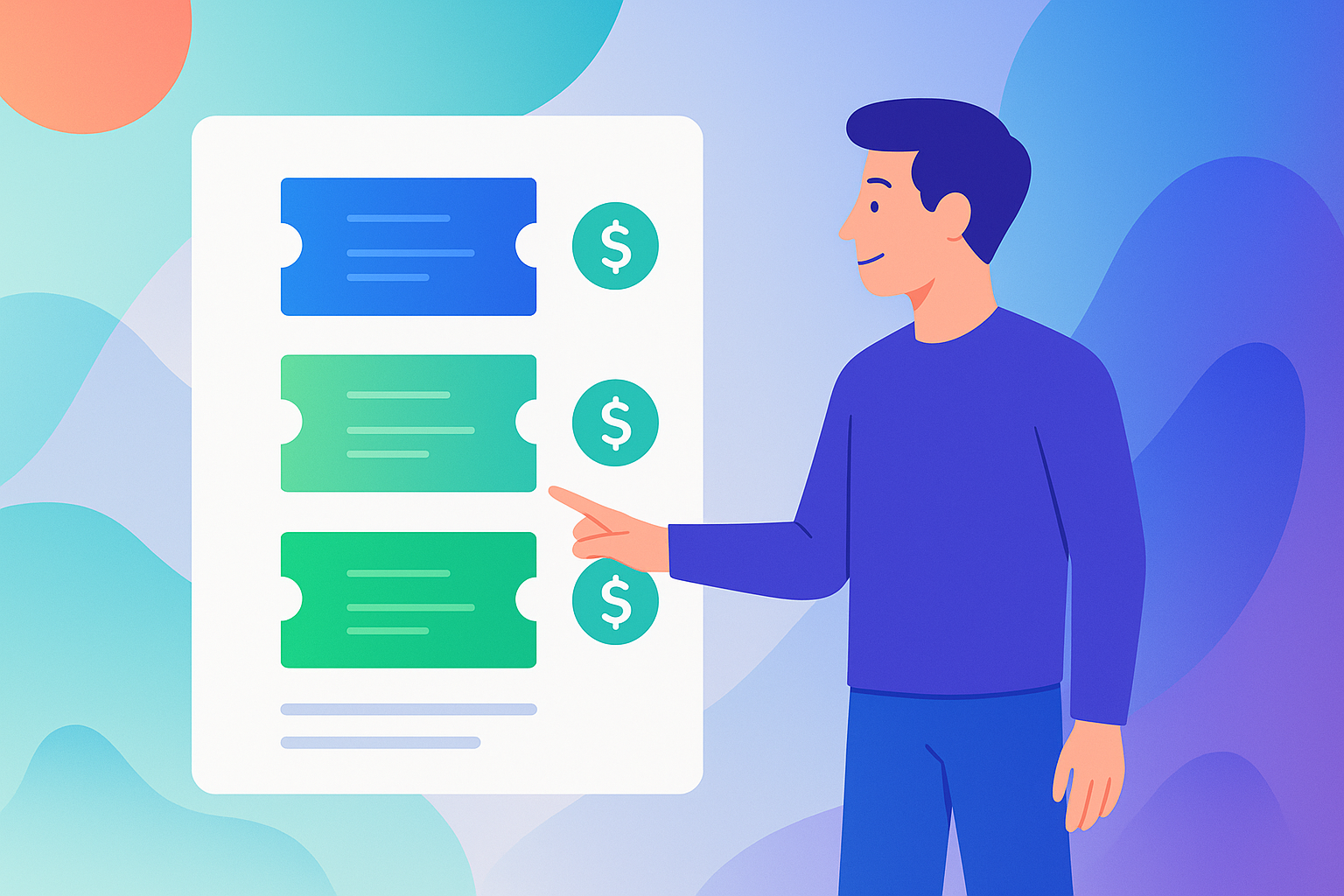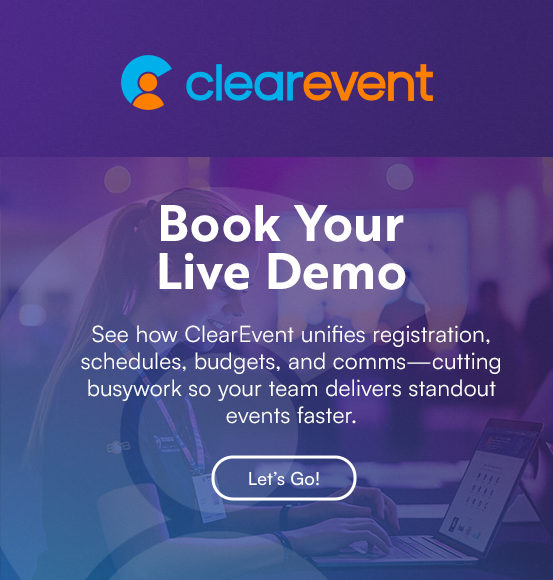How to Set Up Tiered Ticket Pricing for Events

Running an event with a small team doesn’t have to feel overwhelming. With the right approach, tiered ticket pricing can help you boost revenue, fill seats faster, and offer something for every budget, all without adding complexity to your workload.
In this guide, you’ll learn practical event planning tips to design pricing tiers that appeal to different audiences, drive predictable event revenue, and make management easy with modern event ticketing software.
Let’s dive in.
What Is Tiered Ticket Pricing?
Definition and Purpose
Tiered ticket pricing means offering multiple ticket types at different price points, each providing its own benefits or experiences. It lets organizers meet diverse attendee needs while unlocking more earning potential.
Think of it like an airline: everyone’s heading to the same destination, but travelers choose between economy and premium for the experience that fits their budget. The same idea applies to your event: all attendees participate, but their extras depend on what they select.
This approach gives your audience choice, increases perceived value, and creates a healthy, flexible pricing structure for your event.
Common Ticket Types
A simple, effective tiered structure often includes:
- Early Bird Tickets: Discounted rates for early commitments. It's a great way to improve cash flow and forecast attendance.
- General Admission: Standard access to sessions or activities.
- VIP or Premium: Higher-priced options with added perks such as exclusive receptions, front-row seating, or meet-and-greets.
- Group or Corporate Rates: Discounts for team registrations or large delegations.
- Student or Nonprofit Rates: Affordable access for community-focused or educational events.
Benefits of Tiered Pricing
Tiered pricing helps you:
- Maximize event revenue by capturing premium value while maintaining accessibility.
- Increase attendance by appealing to multiple price sensitivities.
- Enhance perceived value: standard tickets look more attractive when compared to VIP tiers.
- Gather data-driven insights on what your audience values most for future planning.
Each tier provides a reason for attendees to say “yes” while giving you valuable feedback on what sells best.
Planning Your Ticket Tiers
Building your tiers is part strategy, part psychology, and it starts with knowing your audience.
Know Your Audience
Look at past attendee data or survey insights to identify your key segments:
- Professionals and sponsors may value networking and convenience.
- Students or nonprofits will prioritize affordability and learning.
- Traveling attendees may appreciate VIP-level comfort and streamlined check-in.
These insights guide what perks to include and how to price them effectively. Your event management software should make capturing and analyzing this data easy.
Set Clear Price and Value Differences
Each tier should feel distinct and worth its price.
For example: If your general admission ticket is $150, a $300 VIP ticket might include:
- Reserved seating
- Exclusive networking reception
- Catered meals
- Fast-track entry
Keep discounts meaningful but balanced. Early bird pricing around 15–25% off encourages quick decisions without undercutting full-price sales.
If you’re unsure how to balance your costs and ticket prices, our event budgeting guide explains how to forecast expenses and align pricing tiers with your financial goals.
Plan Ticket Quantities and Availability
Plan availability intentionally:
- 30–40% Early Bird Tickets to lock in early sales
- 50–60% General Admission for broad access
- Up to 10% VIP Tickets to maintain exclusivity
Clear, limited quantities create urgency and encourage faster purchases.
How to Create Tiered Ticket Pricing
Once your tiers are defined, it’s time to set them up using your event ticketing software. See our complete guide on how to sell event tickets online for additional setup and promotion strategies.
Create Multiple Ticket Types
Use descriptive, benefit-oriented labels such as General Admission, Premium Experience, or All-Access VIP. Avoid “Tier 1” or “Tier 2”, your names should communicate value at a glance.
Each ticket should clearly list what’s included and what’s exclusive. Use your event management software to automate deadlines, ticket limits, and access permissions to prevent overselling and confusion.
Add Optional Extras
Add-ons let attendees customize their experience while increasing per-ticket revenue. Examples include:
- Workshop sessions
- Parking or shuttle passes
- Networking dinners
- Event merchandise
Be sure your platform updates inventory in real time so availability stays accurate across all ticket pages.
Test and Optimize Before Launch
Before opening sales to the public:
- Test each ticket type for correct pricing and benefits.
- Verify automated confirmations and receipts.
- Check that discounts and time-limited pricing work correctly.
- Run through the checkout on both desktop and mobile.
You can even soft-launch to a small internal group for feedback on clarity and ease of purchase.
Managing and Adjusting Your Ticket Strategy
Monitoring live sales helps you adapt quickly and stay profitable.
Track Sales Performance
Use your event management platform’s reporting to:
- See which tiers sell fastest
- Measure conversions from early bird to full price
- Track discount and promo code usage
If one tier sells out quickly, consider releasing a bonus tier or adding VIP capacity. If another lags, adjust pricing or highlight additional perks.
Apply Dynamic Pricing Techniques
Dynamic pricing helps balance supply and demand. Try:
- Gradual price increases as the event date nears
- Limited-time offers to encourage action
- Showing remaining ticket counts to spark urgency. Sales can rise by up to 35% when inventory drops below 15%
Small adjustments can make a significant impact on final revenue.
Post-Event: Improve Future Pricing
Your event’s end marks the start of better pricing for next time.
Analyze Ticket Data
Compare tiers for:
- Total revenue generated
- Sales velocity (how fast tickets sold)
- Purchase timing and buyer behavior
If VIPs sell out early, consider expanding that tier. If early birds move slowly, improve promotion timing or the perceived value of early commitment.
Gather Attendee Feedback
Ask attendees about their experience:
- Did their ticket feel worth the cost?
- What influenced their decision to buy or upgrade?
- What would they like to see offered next time?
Combining this feedback with data helps you price with confidence.
Use Reporting and Analytics
Your event management software should offer real-time reports on:
- Tier profitability
- Add-on performance
- Discount effectiveness
- Year-over-year growth
This data gives you a clear path to continually refine your event revenue strategies.
Simplify and Strengthen Your Event Revenue
Tiered ticket pricing isn’t just about charging different amounts but rather about giving attendees options that feel right for them while keeping your finances predictable.
By pairing thoughtful pricing with powerful event management software, you can plan smarter, sell faster, and simplify success. Every tier becomes an opportunity to enhance attendee satisfaction and grow your bottom line.
Ready to explore smarter pricing? Learn how ClearEvent makes it easy to manage tickets, track sales, and optimize your next event.
Frequently Asked Questions (FAQ)
What is tiered ticket pricing for events? Tiered ticket pricing is a strategy where organizers offer multiple ticket types at different price points, each providing unique perks or access levels. It allows you to appeal to a broader audience and increase total event revenue by catering to varying budgets.
How do I decide the right number of ticket tiers? Most events perform best with three to four tiers: early bird, general admission, premium, and VIP. Too many options can overwhelm buyers, while too few may limit potential revenue. Aim for clarity: each tier should clearly show its added value.
When should I launch early bird ticket sales? Early bird tickets typically go on sale 60–90 days before your event. This timing creates urgency, drives early cash flow, and helps you gauge demand while maintaining excitement leading up to your main sales phase.
What’s the best way to price VIP tickets? Price your VIP tickets based on the tangible and perceived value they deliver. Include exclusive experiences like networking access, special meals, or reserved seating, and ensure the upgrade feels worth the cost difference compared to general admission.
Can event management software automate tiered ticket pricing? Yes. Modern event management software like ClearEvent allows you to set up multiple ticket types, automate early bird deadlines, manage inventory in real time, and track performance analytics, saving time and reducing manual work.
